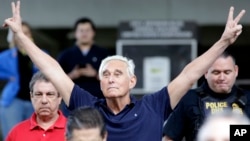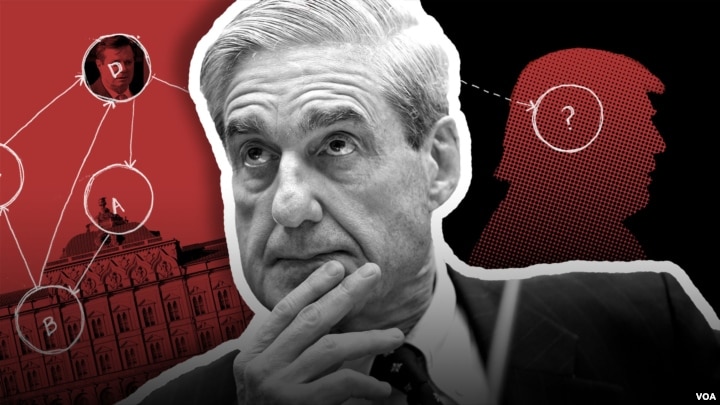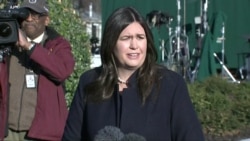Roger Stone, a former campaign adviser to U.S. President Donald Trump, was released on a $250,000 bond Friday, hours after being arrested on several criminal charges stemming from the special counsel's investigation of Russian interference in the 2016 U.S. national election.
Leaving the courtroom Friday, Stone told reporters and protesters that he had been "falsely accused".
"I will plead not guilty to these charges, I will defeat them in court. I believe this is a politically-motivated investigation," he said, affirming his commitment to President Trump.
"I have made it clear that I will not testify against the president, because I would have to bear false witness against him," he said against a backdrop of protesters chanting "lock him up."
After his remarks, Stone paused and turned back to the crowd with both arms in the air - a pose once made by President Richard Nixon as he left the White House in disgrace. Stone once worked for Nixon.
Federal agents arrested Stone early Friday in the southeastern state of Florida after a federal grand jury indicted him for making false statements, obstruction of justice, and witness tampering.
Stone did not enter a plea in the Fort Lauderdale court Friday morning. Magistrate Judge Lurana Snow told Stone that he could not travel outside of South Florida, Washington, D.C., or New York, and was not to be in contact with witnesses.
Stone has previously denied any wrongdoing. He is the sixth Trump associate to be charged in the Special Counsel's investigation.
Hours after Stone's arrest, Trump's former campaign chair Paul Manafort appeared in court for the first time in months, challenging allegations that he breached his plea deal and lied to investigators.
Special counsel prosecutor Andrew Weissmann said that he did not currently intend to charge Manafort with additional crimes related to the breach.
Special Counsel Robert Mueller's team is investigating Russia's interference in the 2016 election, and the allegations against Manafort raise the possibility that information he provided helped Russia's efforts. The U.S. intelligence community has assessed that Russia worked to undermine the election with a clear preference for Trump to win.
U.S. Sen. Mark R. Warner (D-VA), Vice Chairman of the Senate Select Committee on Intelligence said Friday that Stone was indicted "for covering up his engagements with Wikileaks", an organization that U.S. intelligence officials have designated as a hostile intelligence service, in relation to the public release of emails stolen by Russia.
"It is clear from this indictment that those contacts happened at least with the full knowledge of, and appear to have been encouraged by, the highest levels of the Trump campaign," Warner said in a statement.
The White House said early Friday that that Stone's indictment had nothing to do with Trump.
"The charges brought against Mr. Stone have nothing to do with the president, has nothing to do with White House," White House spokeswoman Sarah Sanders said in an interview with CNN. "The president did nothing wrong."
WATCH: Sanders responds to Stone indictment
Stone faces scrutiny for implying during the election campaign he had inside knowledge of data obtained by hackers that could embarrass Democrats, including Trump's rival for the White House, Hillary Clinton. In the indictment, U.S. prosecutors allege Stone had sent and received numerous emails and text messages in which he discussed "Organization 1, its head, and its possession of hacked emails."
Organization 1 was not revealed in court documents but matches the description of WikiLeaks, which is dedicated to publishing secret and classified information provided by anonymous sources.
The indictment does not accuse Stone of coordinating with Russia in its interference in the election. But Special Counsel Robert Mueller has said those emails, belonging to Clinton campaign chairman John Podesta, were hacked by Russian intelligence officers.










